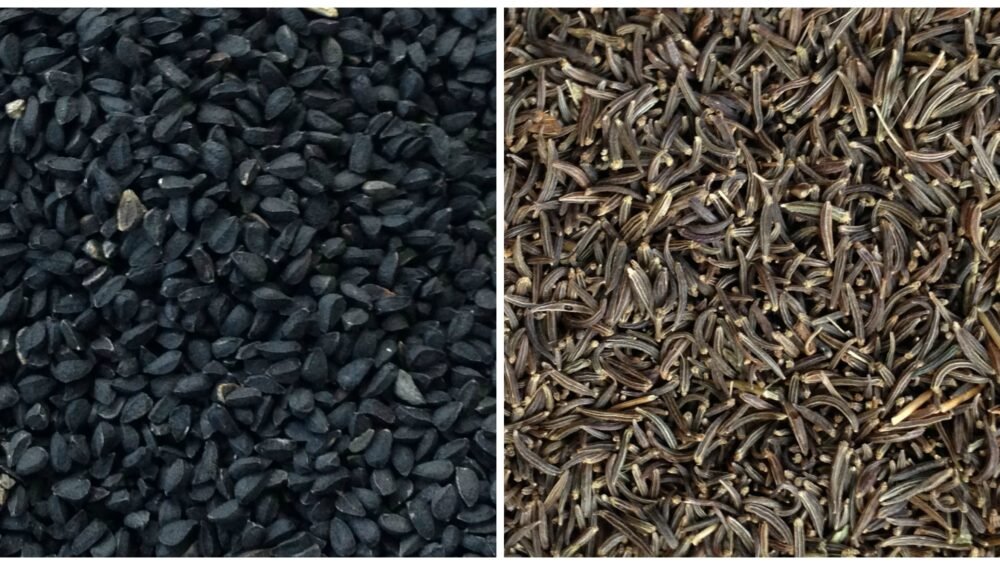The Fascinating World of Black Seeds
Black seeds, also known as Nigella sativa, have gained popularity for their potential health benefits and culinary uses. These small, dark seeds come from the flowering plant Nigella sativa, native to Southwest Asia. While the term “black seeds” is commonly used, it’s essential to delve deeper into the world of these seeds and understand the various types available.
Understanding the Types of Black Seeds
Black seeds aren’t a monolithic entity; instead, they encompass different varieties with unique characteristics. Let’s explore some of the notable types:
1. Nigella Sativa
The most well-known and widely recognized type of black seed is derived from the Nigella sativa plant. This variety is often referred to as the “true” black seed and is renowned for its potential health benefits. Studies suggest that Nigella sativa may possess antioxidant and anti-inflammatory properties, making it a sought-after addition to holistic wellness practices.
Not only are these seeds used in traditional medicine, but they are also incorporated into various cuisines for flavor enhancement and nutritional value.
2. Bunium Persicum
Another type of black seed, often confused with Nigella sativa, is derived from the Bunium persicum plant. Commonly known as black cumin or Persian cumin, these seeds have a slightly different flavor profile compared to Nigella sativa. Bunium persicum seeds are used in Middle Eastern and Indian cuisines, adding a unique taste to dishes.
While both types of seeds share some similarities, it’s crucial to recognize the distinctions between them to fully appreciate their individual qualities.

The Culinary and Medicinal Uses
Both types of black seeds are not only valued for their distinct flavors but also for their potential health benefits. Incorporating these seeds into your diet may contribute to overall well-being:
1. Culinary Uses
Nigella sativa seeds are often used in baking, giving bread and pastries a subtle nutty flavor. In Middle Eastern cuisine, these seeds are a common spice, sprinkled on flatbreads and added to salads for an aromatic touch.
Bunium persicum seeds, on the other hand, are prevalent in Indian cuisine. They are used in spice blends and curry preparations, enhancing the taste of various dishes.
2. Medicinal Benefits
The potential health benefits of black seeds, particularly those from Nigella sativa, have been a subject of scientific research. These seeds are rich in antioxidants and may have anti-inflammatory properties, which could contribute to better immune health and overall well-being.
It’s important to note that while black seeds may offer potential health benefits, consulting with a healthcare professional is advisable before incorporating them into your diet as a form of treatment.
SEO Optimized Practices for Black Seed Enthusiasts
For those intrigued by the diverse world of black seeds, optimizing content for search engines is crucial to ensure that valuable information reaches a wider audience. Here are some SEO-friendly practices:
1. Keyword Integration
Include relevant keywords such as “black seeds,” “Nigella sativa,” and “health benefits” throughout the article. This helps search engines understand the content and rank it appropriately in search results.
2. Engaging Headings
Utilize engaging headings with <h2> and <h3> tags to organize information effectively. This not only enhances readability but also signals to search engines the hierarchy of information within the content.
3. Quality Content
Provide valuable and informative content that addresses common questions and concerns related to black seeds. High-quality content is more likely to be shared and linked to, improving its search engine ranking.
4. Meta Description
Create a compelling meta description that succinctly summarizes the article’s content. This brief snippet appears in search engine results and can significantly impact click-through rates.

Conclusion: Embracing the Diversity of Black Seeds
Black seeds, with their rich history in traditional medicine and culinary applications, offer a fascinating journey into the world of natural wellness. By understanding the different types of black seeds and their respective benefits, enthusiasts can make informed choices about incorporating these seeds into their daily lives. As research continues to uncover the potential health advantages, black seeds are likely to maintain their status as versatile and valuable additions to both the kitchen and holistic health practices.
Remember, the key to enjoying the benefits of black seeds lies in moderation and a balanced approach to overall health and wellness.




